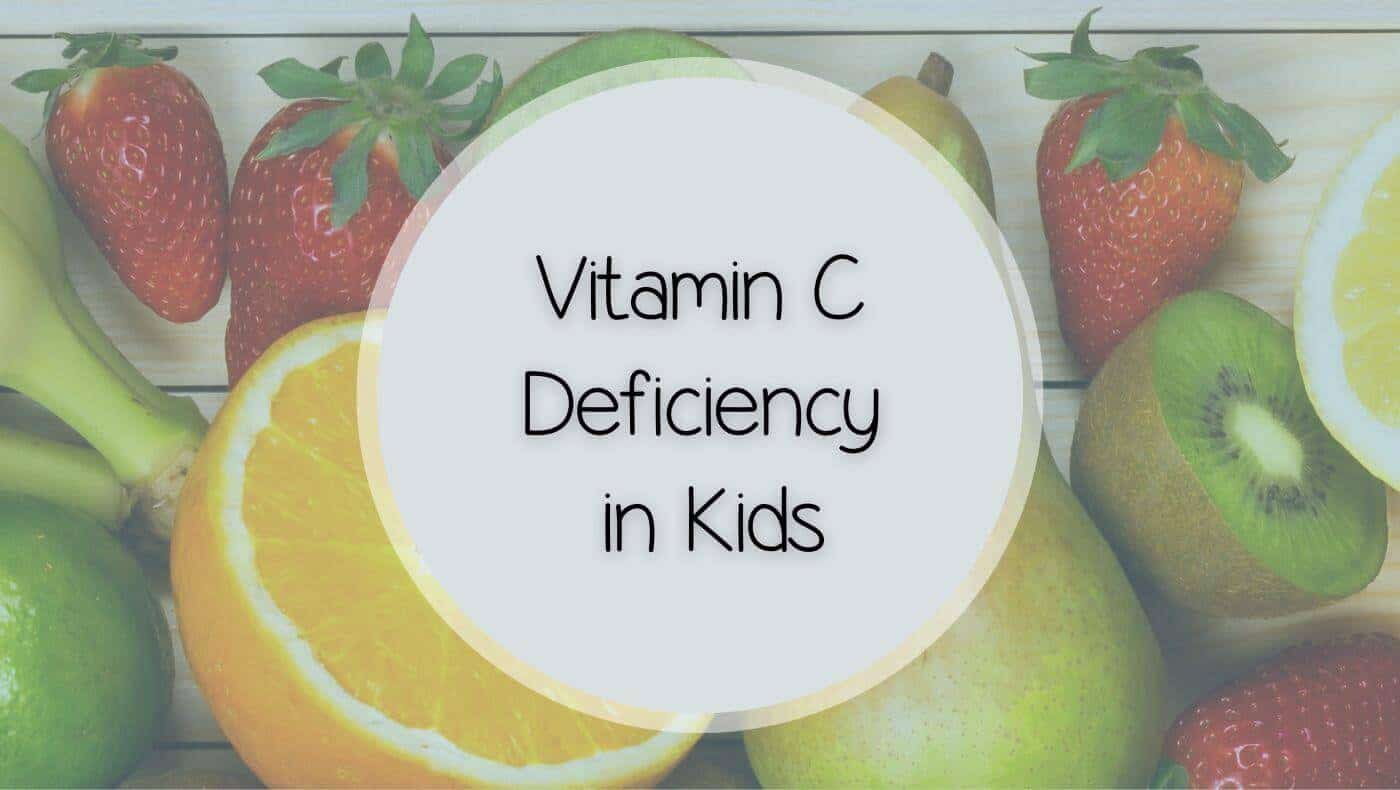Last updated on January 8th, 2024 at 03:41 pm
Disclosure: There are affiliate links in this post. If you click the link and buy something, I’ll get a commission at no additional cost to you! However, all my recommendations are things that I personally use because I know they’re clean and good quality products – not just anything with an “affiliate” label on it 😉
What is Vitamin C, and what does it do for the body?
Vitamin C, also known as ascorbic acid, is a water-soluble vitamin. It cannot be produced by the body, so it is important to include foods rich in vitamin C in your diet.
Vitamin C is involved in many important processes in the body including:
- Collagen synthesis
- Wound healing
- Iron absorption
- Antioxidant – meaning that it helps to protect cells from damage caused by free radicals
What are the effects of Vitamin C on kids’ bodies and health?
Vitamin C deficiency can lead to a condition called scurvy, which can cause fatigue, joint pain, gum disease, and skin bleeding.
The causes of Vitamin C deficiency in kids
- Poor diets – Children who consume a diet that is low in fruits and vegetables are at risk for vitamin C deficiency. processed foods, fast foods, and sugary drinks can also contribute to poor dietary habits that lead to deficiency.
- Limited access to healthy foods – Children who live in food deserts or do not have access to fresh, whole foods are at a higher risk for vitamin C deficiency.
- Chronic illness – Conditions like Celiac disease, Crohn’s disease, and cystic fibrosis can prevent the absorption of vitamin C from the diet and lead to deficiency.
- Certain medications – Some medications, such as steroids, can increase the body’s need for vitamin C and lead to deficiency if adequate intake is not maintained.
If left untreated, vitamin C deficiency can lead to serious health problems such as scurvy, fatigue, weak immunity, and bleeding gums. It is important to talk to a doctor if you suspect that your child may be deficient in vitamin C so that they can receive the necessary treatment.
Symptoms of Vitamin C deficiency in kids
Symptoms of Vitamin C deficiency in kids can be subtle at first. They may seem like common childhood ailments, such as the occasional cold or stomachache.
However, over time, these symptoms can become more severe and even lead to life-threatening conditions. Symptoms of Vitamin C deficiency in kids include:
- Fatigue
- Weakness
- Weight loss
- Impaired wound healing
- Dry, scaly skin
- Joint pain
- Easy bruising and bleeding
Treatment for Vitamin C deficiency in kids
Treatment for Vitamin C deficiency generally involves increasing the intake of foods that are rich in Vitamin C, such as citrus fruits, tomatoes, and leafy green vegetables. In some cases, kids may also need to take a Vitamin C supplement.
Foods that are high in Vitamin C
Foods that are high in Vitamin C include oranges, grapefruits, tomatoes, leafy greens, bell peppers, and strawberries.
While many people take Vitamin C supplements to help prevent colds and other illnesses, eating foods that are naturally high in Vitamin C is a healthy way to get the nutrient into your diet.
Tips for ensuring your child gets enough Vitamin C
As any parent knows, ensuring that your child gets all the nutrients they need can be a challenge. However, it’s important to make sure that they’re getting enough Vitamin C, as it plays an essential role in their health. Here are a few tips to make sure your child is getting enough Vitamin C:
- Make sure they’re eating plenty of fruits and vegetables, especially citrus fruits like oranges and grapefruits.
- If your child doesn’t like fruits and vegetables, try giving them a daily supplement.
- Cook with foods that are high in Vitamin C, such as broccoli, Brussels sprouts, and red peppers.
- Add a splash of orange juice to their morning breakfast or afternoon snack.
Vitamin C is essential for kids’ growth and development. It helps to build strong bones and teeth, and it also aids in the absorption of iron. However, many kids do not get enough Vitamin C through their diet alone. That’s where supplements can come in handy.
If you are looking for safe and effective Vitamin C supplements for kids, check out my immune-boosting supplements list.





0 Comments